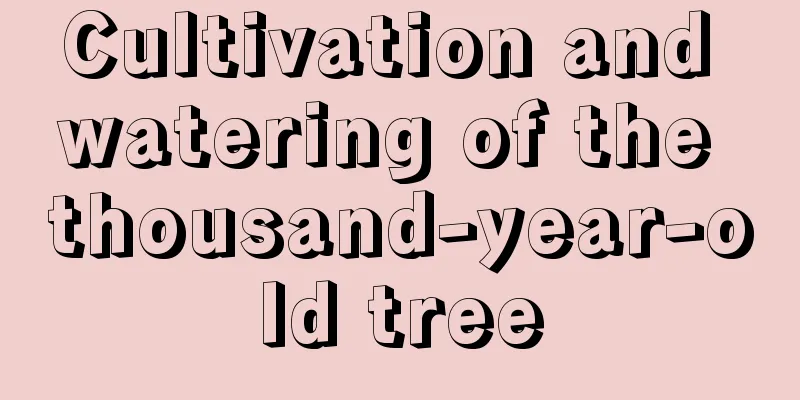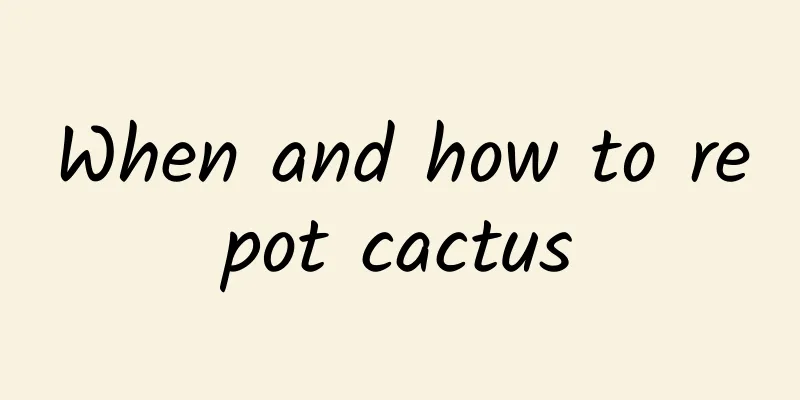Ginkgo leaves fall off after being watered too much, and the leaves turn yellow and wither

1. Watering causes leaves to fall offGinkgo itself prefers a humid environment, but it is not tolerant to waterlogging. Once it is watered too much, the plant's breathing will be restricted. If the situation continues to deteriorate, it will cause root rot, causing the leaves to fall off. In this case, it is necessary to do a good job of drainage, strengthen ventilation, and loosen the soil appropriately so that the moisture in the soil can evaporate as quickly as possible. If the root rot is severe, you can also consider removing the plant from the pot and trimming the roots, cutting off the rotten parts and replanting. 2. What to do if the leaves turn yellow and wither1. Increase light: Ginkgo is a light-loving plant. If it does not get enough light, its leaves will turn yellow and wither. Generally, it should be planted in a sunny place when planted in the ground, so as long as it is not cloudy for a long time, it should not lack light. But it is different for potted plants. Although there is light on the balcony, the ultraviolet rays received will be reduced through the glass, thereby reducing the efficiency of light. You can put it outdoors to bask in the sun. 2. Proper watering: If ginkgo does not get enough water during its growth, its branches and leaves will turn yellow and wither due to lack of water. In this case, appropriate watering is needed, and the amount of water should be controlled. If too much water is given, it will be detrimental to the growth and development of the plant and may also cause root rot. Watering should be done frequently and in small amounts in spring, and not too frequently in summer. You can boil water appropriately in autumn and winter. 3. Supplement fertilizer: Ginkgo is a plant that likes fertilizer and is very resistant to fertilizer. Fertilizer damage rarely occurs, but the leaves will turn yellow and wither due to lack of fertilizer. In this case, we need to observe the location of the yellow leaves to determine which element is missing. For example, if the leaves lack luster, it means they are lacking in nitrogen. If the leaves are yellow and green, it means they are lacking in phosphorus. If the base and middle parts turn yellow, it means they are lacking in potassium. After determining the missing nutrients, supplement them with corresponding fertilizers. |
<<: When does the ginkgo leaf turn yellow? Why does the ginkgo leaf turn yellow?
>>: Can jasmine survive if its leaves turn yellow? What should I do if the leaves turn yellow?
Recommend
How to plant orange seeds and how many years will it take to bear fruit
1. How to plant orange seeds 1. Process the seeds...
Management methods for indoor flowers in June
Indoor humidity in June Generally, some flowers t...
Cherry's growing environment and local conditions
Cherry growing environment and conditions Cherrie...
Can lilies be placed in the bedroom?
1. Can it be placed in the bedroom? It cannot be ...
What medicinal herbs are the most profitable to grow in Shaanxi? What are the most suitable precious medicinal herbs to grow in Shaanxi?
Shaanxi Province is located in the central part o...
How to use the seedling box
Seedling tray How to use the seedling tray When u...
What vegetables are suitable for growing wood ash
What vegetables are suitable for growing wood ash...
Can I water the grapefruit tree when it is blooming?
Watering the grapefruit tree in bloom The pomelo ...
What are the breeding methods and precautions for thread iron
Threaded Iron Introduction Threaded ironwood is a...
How to grow azaleas and why the leaves turn black
1. How to maintain 1. Potting soil: If you want t...
How to trim Ophiopogon japonicus
When is the right time to mow Ophiopogon japonicu...
When does the Jade Plant bloom? Management of the flowering period of the Jade Plant
1. When does it bloom? Jade plants usually bloom ...
Planting two kinds of plants together can double the air purification effect
Golden partner: Chang Diao combination Placement:...
How to water apricot trees in winter
Watering apricot trees in winter Apricot trees ca...
How to care for Clivia
Clivia flower growing conditions The suitable tem...









